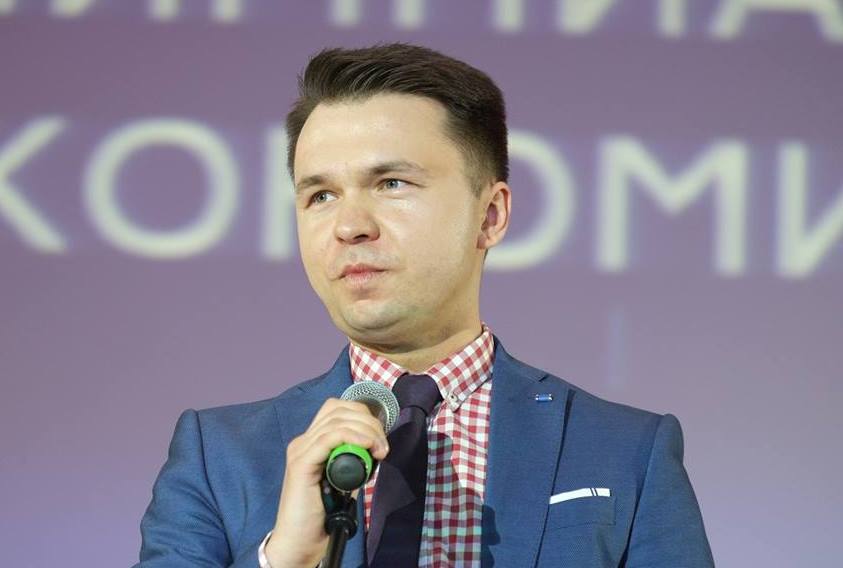‘The ICEF Academia programme immerses students in advanced economics and teaches them how to think critically’

Danil, please tell us about what you teach in the Economic Thinking course?
I teach the Economic Thinking course for first-year students of the ICEF Academia programme, along with HSE University’s Director for Teaching Excellence Development, Andrei Dementiev. We both aim to present economics from various angles. My section could be called the ‘Olympiad-level Microeconomics’. Many students taking part in ICEF Academia were enrolled at ICEF based on their results at Olympiads in Economics (primarily from the All-Russian Olympiad in Economics for school students). A standard microeconomics course would be too easy for them as they already have some knowledge. So, with the Economic Thinking course, I teach them to think about more complicated problems. That is, not technically (or mathematically) complicated; rather, the ones that model unusual economic scenarios and relations. With a standard microeconomics course, there are many subjects that need to be taught over a short period of time. So, it’s not always possible to discuss such challenging and unique issues in depth, while within the course for ICEF Academia we can work through them as a close-knit unit (10-15 students) and at our own, comfortable, pace. For instance, we tackle such issues as: can economic growth hurt a country if it is part of the international trade system? If some product isn’t sufficiently available, what mechanisms are best to use to ensure its effective distribution? Or, how do restaurants choose the best time to hold a happy hour? Or, does construction of new roads make traffic problems worse, etc.
What is the lesson format?
We didn’t want Economic Thinking to be a standard course with lectures. Since there is a small group of students, we can afford to hold all classes as a discussion of various issues. My part of the course includes microeconomic problems each focusing on some complicated concept. Moreover, students should also take the Model Thinking online course offered by the University of Michigan to get an excellent grade for the course.
What students tend to take this course?
As I noted, most of the students are previous participants of Economics Olympiads. However, there are also students who have never taken part in such events but who are keen to immerse themselves in economics beyond basic courses. Many of them I already know from various projects for school students (Olympiads, summer schools, etc.), and it’s my hope that they might one day become my colleagues in such projects. I think, for most of them it would an interesting experience, at least.
What, in your view, attracts students to ICEF Academia?
Over recent years (and this is confirmed by stats), ICEF admits more and more Olympiad winners in economics. This, of course, presents a challenge to the institute – how do you teach those who already know a lot?
The courses offered through ICEF Academia can meet this challenge, while also involving the best students into advanced economics. If they wish to pursue an academic career later, they will utilize additional knowledge. Or, if they want something different, they will possess the skills to deal with complex and unprecedented problems, as well as defend their own views relying on strict models, which will come in handy for any career. I think that the ICEF Academia programme shouldn’t aim to involve larger number of students. I am, for one, comfortable teaching a small class (up to 15 students), and this is, in fact, the most effective format. You can hear the opinion of each and every student, gauge their strengths and weaknesses and be sure that they have learnt something meaningful.
You’ve been rated as the Best Teacher six times already. What do you consider important in your work? And what matters the most for your students?
I think one’s teaching style is extremely important. When I started working at HSE in the Department of Theoretical Economics, I was doing lectures for large groups of students, so you couldn’t slow down the pace for a bit, or the students could lose interest and you would lose contact with them. Moreover, it’s important not to lose contact both inside and outside of the classroom. At university, each instructor works according to their set schedules, and students can contact them via e-mail, through social networks, ask for individual tutorials, pose questions, etc. I, for one, love microeconomics and love to talk about it. So, when students ask to hold a tutorial outside of my normal working hours I always try to find the time. In my opinion, this is an essential component of the study process. Furthermore, we should always remember to explain why we teach. For the course, I try to give examples from real life, and not simply explain things with abstract formulas and ideas.
Anastasia Chumak, specially for HSE ICEF